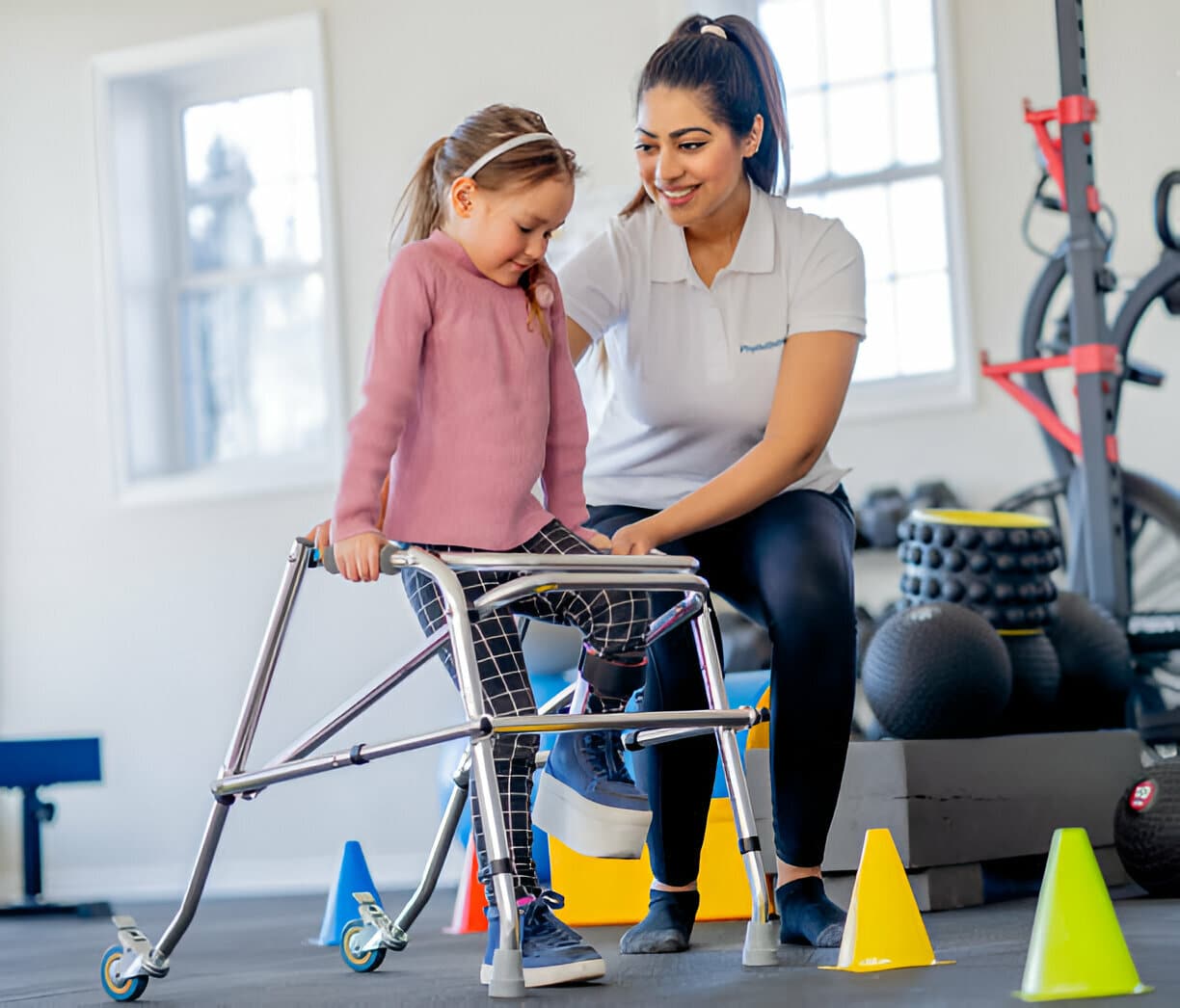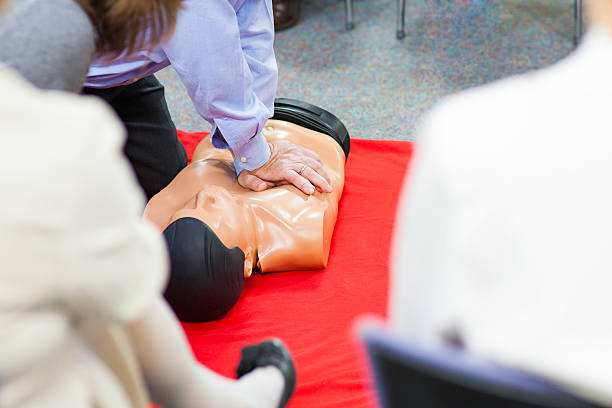Skills training is very important for people with disabilities. It helps them to be more independent and to live a better life. By learning new skills, people with disabilities can do more things on their own and be more involved in their communities.
In this blog, we will talk about skills training for people with disabilities. First, we will explain why skills training is important and how it helps people to be more self-sufficient. Then, we will look at the different types of skills training programs that are available. We will also see how skills training can help people find jobs and be part of their communities. Finally, we will share information about resources and organisations that offer skills training and give tips on how to use these programs effectively.
Understanding Skills Training
What is Skills Training?
Skills training is when people learn new skills or improve the ones they already have. These skills can help them with everyday tasks, find jobs, or be more involved in their communities. Skills training can be done in many ways, such as classes, workshops, or hands-on practice.
Why is Skills Training Important for People with Disabilities?
Skills training helps people with disabilities in many ways:
Independence: Learning new skills can help people do things on their own, like cooking, using a computer, or managing money.
Employment: Skills training can prepare people for jobs and help them find work. It can also lead to better job opportunities.
Social Interaction: Skills training can help people join in activities and be part of their community. They can meet new people and make friends.
Self-Confidence: Gaining new skills can make people feel more confident and capable. This can improve their overall well-being and quality of life.
Types of Skills Training Programs
Vocational Training
Vocational training helps people learn specific skills needed for certain jobs. This includes learning how to use tools and equipment, perform job tasks, and follow workplace procedures. For example, someone might learn how to operate a cash register, handle customer service, or manage inventory. Vocational training prepares people to enter the workforce and succeed in their chosen careers.
Daily Living Skills Training
Daily living skills training teaches people how to manage everyday activities on their own. This can include practical skills like cooking healthy meals, cleaning the house, handling money, and using public transport. It also covers personal care tasks, such as grooming and maintaining personal hygiene. Learning these skills helps people with disabilities live more independently and take care of their daily needs.
Social and Communication Skills Training
Social and communication skills training helps people interact with others and express themselves effectively. This includes learning how to start and maintain conversations, understand and respond to social cues, and work well with others. Training might also cover skills like writing emails or making phone calls. These skills help people build relationships, participate in social activities, and feel more confident in various social situations.
Specialised Training
Specialised training focuses on using specific tools or technology that helps with daily tasks. This might include learning how to use assistive devices, such as screen readers or hearing aids, or specialised software, like voice recognition programs. Specialised training ensures that people with disabilities can make the most of these tools to improve their independence and daily functioning.
Key Components of Effective Skills Training
Individualised Training Plans
Individualised training plans are made just for each person. They focus on what that person needs and wants to learn. This means the training will be tailored to their unique skills, interests, and goals. For example, if someone wants to learn how to cook but has difficulty with certain tasks, the plan will be adjusted to help them learn at their own pace and in a way that works best for them.
Person-Centred Approach
A person-centred approach means focusing on the person’s needs and preferences. This approach ensures that the training is designed around what the person wants to achieve and how they learn best. It involves listening to the person, understanding their goals, and involving them in decisions about their training. This helps make the training more relevant and effective for the individual.
Use of Assistive Technologies and Adaptive Tools
Assistive technologies and adaptive tools are special devices or software that help people with disabilities. These tools can include things like screen readers, voice recognition software, or specialised keyboards. Using these tools during training helps people learn new skills more easily and can make daily tasks more manageable. For example, a person with a visual impairment might use a screen reader to help them learn how to use a computer.
Role of Registered Training Organisations (RTOs)
Registered Training Organisations (RTOs) are institutions that provide training and education. They are officially recognised and approved by the government to deliver vocational education and training. RTOs offer a range of programs and courses designed to help people gain new skills and qualifications for various jobs and industries.
METS: Best Skills Training Provider
METS Training Services is known for offering excellent skills training services. They provide a range of training programs designed to meet the needs of various individuals. One of their key offerings is the BSB20120 Certificate II in Workplace Skills course. This course is designed to help individuals develop essential workplace skills, including communication, teamwork, and problem-solving. It is ideal for those looking to enhance their job readiness and career prospects.
METS Training Services offers comprehensive support to help you develop a variety of essential business skills. Their trainers are dedicated to enhancing your abilities in key areas, including:
Time Management: Learn to efficiently organise and prioritise your tasks to meet deadlines and manage your workload effectively.
Communication: Improve your ability to clearly and effectively communicate with colleagues, clients, and other stakeholders.
Business Software and Digital Technologies: Gain proficiency in using various business software and digital tools to perform your job tasks more efficiently.
By completing the BSB20120 Certificate II in Workplace Skills, individuals will be equipped to:
Develop Soft Skills: Enhance skills such as communication, teamwork, and awareness of wellbeing in the workplace, which are crucial for a positive and productive work environment.
Learn Transferable Skills: Acquire valuable skills like using digital technologies and preparing business documents that can be applied across different job roles.
Identify Sustainable Practices: Understand the benefits and areas for improvement in sustainable practices within the workplace, contributing to more environmentally friendly and efficient business operations.
Benefits of Skills Training
Enhanced Independence and Self-Sufficiency
Skills training helps individuals become more independent by teaching them how to perform tasks on their own. This might include daily living activities like cooking or managing finances. When people can handle these tasks without assistance, they gain confidence and a greater sense of control over their lives.
Improved Quality of Life and Personal Well-Being
Learning new skills can greatly improve quality of life. It helps individuals feel more capable and empowered, leading to increased personal satisfaction and well-being. Skills training can also provide opportunities for social interaction and personal growth, which contribute to a more fulfilling life.
Increased Employment Opportunities and Job Satisfaction
Skills training opens doors to better job opportunities by providing the knowledge and abilities needed for various roles. It prepares individuals for the workforce and helps them find jobs that match their skills and interests. This can lead to greater job satisfaction, as people are more likely to enjoy their work and feel valued in their roles.
How to Get Started
If you’re ready to begin skills training or enrol in courses, contact us to explore your options and find the right program for your needs. Visit our contact page for more information and personalised assistance.
Conclusion
Skills training is essential for empowering individuals with disabilities, enhancing their independence, and improving their overall quality of life. By providing tailored programs that focus on essential skills like daily living, communication, and job readiness, skills training enables individuals to gain confidence and actively participate in their communities. It also opens up new employment opportunities and contributes to greater job satisfaction. If you or someone you know could benefit from these opportunities, I encourage you to explore the available resources and programs.
METS.edu.au provides excellent training services, ready to support your journey towards greater independence and success. Our programs are designed to help individuals develop essential skills, improve their quality of life, and achieve their career goals.







